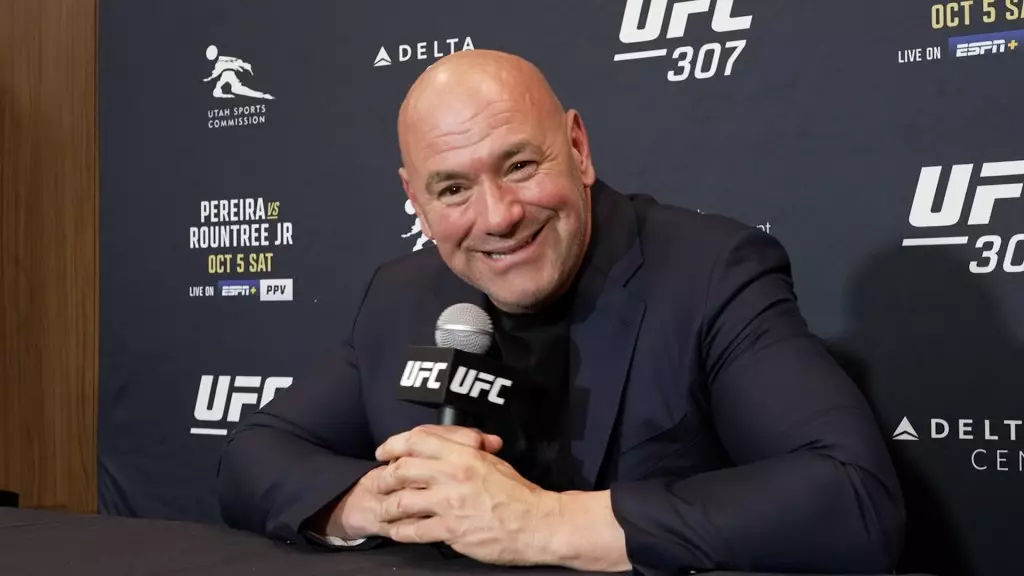In the fast-paced world of mixed martial arts (MMA), competition is fierce, not only among fighters but also among promotions. This rivalry took center stage recently when UFC CEO Dana White publicly criticized the Professional Fighters League (PFL) following the release of a promotional video for an upcoming title bout. This event saw the light of day before UFC 307 at the Delta Center, where White did not shy away from expressing his low opinion of PFL’s recent marketing efforts. The PFL’s promotional video spotlighted fighter Larissa Pacheco’s victory over Kayla Harrison in the previous year, a loss that significantly affected Harrison’s trajectory in the sport, leading her to transition to the UFC.
Kayla Harrison, a two-time Olympic gold medalist in judo, had built an impressive reputation in the PFL but faced criticism after her surprising defeat to Pacheco. This loss marked Harrison’s first setback against Pacheco in three encounters, prompting her subsequent exit from PFL. Since joining UFC, Harrison’s performance has notably improved, showcasing her skills with back-to-back victories, including a significant unanimous decision win over Ketlen Vieira at UFC 307. The UFC’s environment appears to have reinvigorated Harrison, allowing her to flourish amid a more competitive backdrop.
Following UFC 307, Dana White was quick to condemn PFL’s promotional tactics as an indication of desperation, claiming that the organization is suffering financially. His critiques were both pointed and laced with sarcasm, questioning PFL’s spending strategies and the effectiveness of their marketing campaigns. White remarked on a statement by PFL President Donn Davis regarding massive expenditure aimed at their promotional ventures, suggesting that such decisions may not lead to a successful return on investment. “[They] are drowning. Drowning. They suck,” White bluntly stated, indicating that he believes PFL lacks the necessary acumen to thrive in a highly competitive market.
Amid the back-and-forth banter between the two promotions, Harrison represents a unique case of a fighter whose potential appears unlocked once transitioning to the UFC. White’s comments highlight the sentiment that many fighters who previously felt stagnant in organizations like PFL or Bellator can find new life within the UFC. Harrison’s ascent to the top contender status, especially a possible matchup with newly crowned champion Julianna Peña, has generated buzz among MMA enthusiasts, further intensifying the ongoing rivalry.
As the storyline of Harrison unfolds, it underscores a larger trend in the MMA landscape—how fighters can evolve when placed in a thriving ecosystem. White has expressed eagerness to see a potential showdown between Peña and Harrison, which would likely draw significant interest and elevate the narrative surrounding women’s bantamweight in the UFC.
The dynamics between UFC and PFL, punctuated by the brave moves of fighters like Harrison, will continue to shape the trajectory of mixed martial arts, illustrating the profound impact of promotion choices on athlete success and market positioning.

